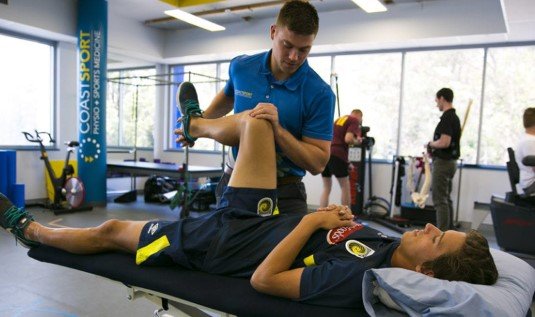What Are the Benefits of Sports Physiotherapy? – Expert Opinion

An athlete’s topmost physical performance and well-being involve training and, most importantly, sports physiotherapy. If you are an athlete or someone who participates in sporting activities, then sports physiotherapy will improve your skills, help prevent injuries, and enhance rehabilitation. This is not only about managing injuries but rather about personalized and anticipatory treatment in order to keep you in your best shape.
An athlete’s experience is not without advantages; however, such advantages come with certain risks, including high and prolonged physical activity, repetitive physical activity, repetitive performance of the same joint movement, and competing at a high level, which could hinder their performance or lead to injuries. Sports physiotherapy is therefore relevant in the rehabilitation and performance enhancement continuum for athletes regardless of their level.
Understanding Sports Physiotherapy
Sports physiotherapy is a subdivision that aims at the risk factors, evaluation, treatment, and rehabilitation of sports or physical activity-related injuries. The definition of sports physiotherapy encompasses more than rehabilitation alone. It possesses visions, notions, and practices of injury prevention, performance enhancement, and expert management to ensure that athletes are healthy and functioning maximally.
For instance, an athlete may sustain common sports injuries like sprains and muscle strain or low back pain due to a sports activity. Sports physiotherapy addresses these issues through a blend of hands-on manipulative therapy, therapeutic exercises, and specific low back pain programs designed to enhance recovery and rehabilitation. It aims to prevent injuries, use certain medicines, rehabilitate, and even improve physical ability; hence, it has great value to all people carrying out physical work.
Read also: Custom Printed Sportswear Telford: The Power of Personalization
8 Benefits of Sports Physiotherapy
There are many benefits to sports physiotherapy treatment aside from eliminating pain and enhancing movement after an injury. Let’s have a look:
- Prevention of Injuries
Injuries sustained during sports activities, such as muscle strains or sprains, can negatively affect performing an activity, and more often than not, they result from overuse or improper techniques. Sports physiotherapists concentrate on the weak areas by encouraging their strengthening, emphasizing balance, and even correcting posture, thus considerably minimizing the risk of injuries.
Preventive programs are unique to your sport and fitness level, enabling you to play more of your sport. For instance, runners who, in most cases, suffer from exposure to their kneecaps due to poor technique or weak quadriceps muscles.
- Improved Recovery
The rest, or rather rehabilitation after an injury, bears certain emotional and unpleasing physical activities that one has to undergo to complete the process. Sports physiotherapy enables one to have or accomplish the healing process organized for weeks or months yet does not compromise the individual’s fitness.
Moreover, the rehabilitation program has a hierarchy where initial programs are low-grade and mainly focus on mobility. Later, advanced-stage programs focus on practicing sport-specific movements in order to prepare the athlete for active participation.
- Personalized Back Pain Treatments
Athletes have felt the need to visit the physiotherapist’s office over recurrent back pains, which may also result from strain, inappropriate lifting, or vigorous exercises. Out of treating back pain, which sports physiotherapists have specialized in, the core and spine are well programmed and exercised to relieve stress on these areas and help in the proper posture of the individual.
Techniques of physiotherapy will address the primary cause of the pain to relieve it and teach the sportsperson how to prevent similar pain from occurring.
- Enhanced Flexibility & Mobility
Peak athletic performance requires a combination of flexibility and mobility. Sports physiotherapists provide stretching regimes and mobility training, which increase the range of motion of joints, make muscles more flexible, and help ease muscle tension. This, by itself, improves performance and minimizes injuries associated with a lack of movement.
For instance, a basketball player suffering from limited shoulder flexibility will likely have a shooting accuracy problem. Such problems can be solved with physiotherapy, allowing the sportsperson to perform functions at their peak.
- Boosted Athletic Performance
Sports physiotherapy, as the name suggests, relates to injuries and improving physical capacity. Recognizing potential trouble spots or imbalances, physiotherapists design training regimens that build strength, speed, and endurance in a targeted manner. This means there won’t be room for poor performance, whether on the field, court, or track.
Most sportsmen are optimistic about the results of sports physiotherapy, for they claim to have better control during the execution of movements and better coordination.
- Rehabilitation After Surgery or Injury
For athletes intent on functional restoration following full recovery, postoperative rehabilitation is of paramount importance. Sports physiotherapy is progressive – it helps the patient regain motion, relieve pain, and restore muscular power in the most efficient way. This ensures that the method of rehabilitation is safe and efficient and there is minimal possibility of getting injured again.
For instance, if an athlete has had ACL reconstruction surgery, he/she will be seen by a physiotherapist to assist him/her in doing exercises to restore stability and strength in the knee over time.
- Mental & Physical Confidence
Sustaining an injury poses great risks to any sportsperson’s psychological well-being. The sports physiotherapist’s emphasis helps restore one’s faith in her or his physique. For this reason, knowing some professionals can do it for you encourages less fear and more confidence, helping you give your all without any distractions from the fear of injuries.
Athletes will often thank their physiotherapists for helping them recover physically and psychologically and preparing them for healthy competition.
- Improved Posture & Movement Mechanics
Chronic pain and re-injuries, in most cases, are due to poor postural habits and abnormal human kinetics. The sports physiotherapist studies your biomechanics and prescribes appropriate exercises to address the problems. Treatment focuses on the affected back muscles and alters the mechanics of movement to address the causes of back pain and promote back health.
As a rule, improving the posture is beneficial for swimmers, rowers, and cyclists who are at risk of developing postural deformities with time.
The Final Words
In competitive sports, neither injuries nor challenges related to performance will ever be eliminated. Yet, sports physiotherapy makes it possible to reduce the risks of injuries, improve recovery rates, and even take performance a notch higher. Excluding cases associated with challenging conditions such as back pains or revitalizing one’s physical strength, sports physiotherapy is central to any ambitious sportsperson.





